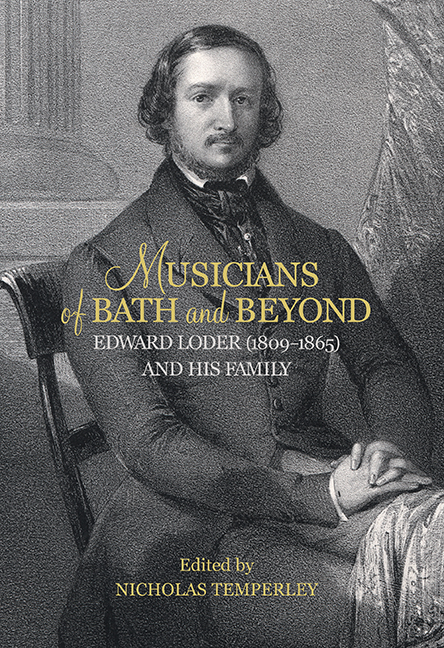Book contents
- Frontmatter
- Contents
- List of Illustrations
- Acknowledgments
- Notes on Contributors
- The Loder Family Tree
- Abbreviations
- Introduction
- PART ONE The Musical Profession in Early Nineteenth-Century England
- PART TWO The Loder Family
- PART THREE The Music of Edward Loder
- EPILOGUE The 1966 Revival of Raymond and Agnes
- Select Bibliography
- Index of Edward Loder’s compositions
- General Index
- Miscellaneous Endmatter
11 - ‘Ah, trait’ress, me betraying’: Edward Loder and his Librettos
Published online by Cambridge University Press: 04 June 2021
- Frontmatter
- Contents
- List of Illustrations
- Acknowledgments
- Notes on Contributors
- The Loder Family Tree
- Abbreviations
- Introduction
- PART ONE The Musical Profession in Early Nineteenth-Century England
- PART TWO The Loder Family
- PART THREE The Music of Edward Loder
- EPILOGUE The 1966 Revival of Raymond and Agnes
- Select Bibliography
- Index of Edward Loder’s compositions
- General Index
- Miscellaneous Endmatter
Summary
IN 1810 the twenty-four-year-old Charles Edward Horn was commissioned to compose the music for a new melodrama by Sir Lumley Skeffington (1771– 1850), The Magic Bride. He had never composed for the theatre before, but felt confident of his abilities, believing he could secure his reputation at a stroke if he wrote the most inspired music of which he was capable. When he heard his melodies played at the rehearsal he felt a thrill of giddy optimism: youthful hubris whispered ‘that Mozart and Haydn only was my superior and that I should some day be their equal’. The music seemed everything: ‘the whole failure or success [of The Magic Bride] depended upon the music I had written.’ But surely, surely it could only succeed? The result, unfortunately, was doubly mortifying to the hopeful young composer: the melodrama was damned and the blame for its failure assigned firmly to Skeffington and the performers. The next day Horn was dismayed to discover that ‘The morning papers had never condescended to say one word about the music.’ Nevertheless, though it had gone mysteriously unmentioned in the reviews, he was still convinced that his impassioned, albeit misunderstood, music must somehow have brought about the failure of The Magic Bride, so when summoned to the manager's office he expected a severe ‘lecture’. Instead he was comforted with the words: ‘Well, Horn, your music was very pretty, but nothing to save the piece. Here is a new farce which I hope will be more successful.’ And the London theatre which had produced Horn's ‘pretty’ music? The English Opera House, founded the previous year, the year of Edward James Loder's birth.
Few anecdotes so vividly illustrate the status of the English theatre composer in the world into which Loder had been born. He might dream of being a Mozart or Haydn; in reality, the highest he could aspire was to be a Henry Bishop, who, as Horn came to realise, was forced to do much musical hackwork and often treated ‘like a carpenter or scene painter’: one of a team of ‘behind the scenes’ people who helped prepare a theatre production.
- Type
- Chapter
- Information
- Publisher: Boydell & BrewerPrint publication year: 2016

